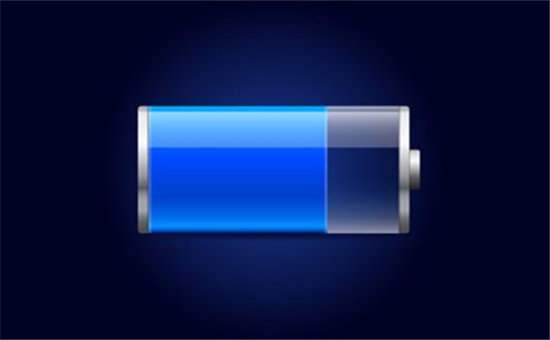Lipo Battery Bulging - Meaning and Solution
Mar 09, 2020 Pageview:1969
Batteries offer portable electricity, giving you the ability to stay powered up without physical limitations. Lithium polymer batteries (LiPo) batteries are some of the most advanced today and are found in everything from mobile phones to drones or even medical devices.
However, LiPo batteries tend to swell up. You may also have heard stories of exploding batteries and houses burning down. What is going on? Read on to find out.
What Does It Mean When A Lipo Battery is Bulging
Lithium batteries swell due to the production of gas inside. It is as a result of the chemical reactions that take place during charging and discharging. However, when that gas is produced in excess, it pushes against the sealed walls of the battery. That is what causes bulging.
If you want to understand why gas is produced, you first have to learn the chemistry of lithium batteries.
How lithium polymer batteries Work
A typical battery consists of a cathode, anode, an electrolyte. The cathode and anode are two terminals made of different metals. In a LiPo battery, these consist of various compounds such as lithium cobaltite (anode or positive terminal) and carbon/graphite for the cathode (negative terminal).
A battery starts of in a state of discharge. During charging, a chemical reaction called oxidation occurs, in which negatively charged ions move from the cathode to the anode. An equal number of positively charged lithium ions is also deposited into the electrolyte, which can be liquid, solid, or a gel.
When discharging, the reverse happens. This movement of ions causes a current to flow between the two electrodes through an external circuit, in this case, being the device you're powering.
What Causes Swelling in LiPo Batteries
The electrolyte mentioned is usually such as dimethyl carbonate or diethyl carbonate. In normal operation, some gases such as oxygen, carbon monoxide, and carbon dioxide are released. However, the casing is usually sealed and they can't escape.
However, as the battery grows old and is affected by things such as overheating and overcharging, gas production can increase. As it builds up, it pushes against the battery walls and causes swelling.
2. Is A Swollen Lipo Battery Dangerous?
Yes, very much so. One of the gases produced when the electrolyte breaks down is oxygen. Oxygen is not dangerous in itself, but many factors come into play that can result in an explosion or fire.
You may have heard of cases where batteries killed people or caused houses to burn down. If you haven’t, here are a few:
●Samsung Galaxy Note 7 phones were recalled after more than a hundred of them were reported to cause fires and explosions. People all over the world have died or been injured when their phones exploded on their bodies.
●Amazon stopped the sale of hovercrafts after their high-density batteries caused several fires both in user's homes and in their warehouses.
●Third-party laptop batteries have been reported to cause explosions and fires
There are many more cases like this, but these are sufficient to show how dangerous LiPo and Li-ion batteries can be.
What Causes Explosion or Burning of a lithium battery
First, it is not only oxygen that is produced when the electrolyte breaks down. Hydrogen gas can also result from an abnormal reaction. These two gases combined love to burn to form water, and the slightest spark can set off an explosion.
The second trigger is overheating. Gases expand easily, and they don't like being confined. If a battery that is already swollen is overheated, chances are that more gas is going to be produced, then they will expand, and then boom!
You also need to remember that lithium is a very dangerous metal. It burns easily and reacts with a whole lot of chemicals, including water. In a good battery, the chemicals in every cell are kept separate by partitions. However, a damaged battery can cause chemicals to mix.
3. What Do You Do If Your lipo battery Is Swollen
Dispose of it. This fact cannot be emphasized enough. When a LiPo battery starts to swell, its internal structure and chemical composition are already compromised. Do not continue using it; do not charge it, and most importantly, do not puncture it.
So, when you notice your LiPo battery starts to swell, you should dispose of it immediately. However, don’t just throw it in the trash. Follow the following steps:
●Fully discharge the battery. Never trash a battery that still has charge in it. Immerse it in a cold solution of salt and water and leave it there for thirty minutes. Alternatively, use a 12V bulb to discharge it until the bulb no longer lights up.
●Cover the terminals with tape. It helps to avoid accidental short-circuiting.
●Recycle the battery. Make sure that you dispose of it in the right garbage cans for electronic trash.
What you can do, however, it takes steps to avoid the swelling in the first place. Here are a few tips.
●Charge your devices using recommended chargers - If you don't have the right charger as provided by the manufacturer, replace it with a recommended model that has similar voltage and current ratings.
●Avoid overheating - Whereas lithium batteries are said to operate better in higher temperatures, you should avoid overheating at all costs. If your phone, laptop, or other devices feel hot to the touch, disconnect it immediately and place it in a ventilated place to cool.
●Store it properly - if you have to store your battery for some time, make sure that you do it while it is between 30% and 80% charged. The storage space must be dry and be well ventilated, while the battery’s exposed terminals should be covered.
If you do notice that your battery is smoking, melting, or otherwise disintegrating, get it as far away as possible. Do not attempt to remove it from the electronic device; keep it far away on a concrete surface on inside a fire safe until it is contained.
Once ignited, it is impossible to put out a lithium fire with conventional means. Do not pour water on it.
Final Words
LiPo batteries are deemed the safest lithium-ion batteries, but they are also susceptible to failure, which can be catastrophic. As manufacturers stuff more and more storage capacity in smaller and cheaper batteries, the danger only increases.
Do not put your safety at risk for the sake of a few dollars. If your LiPo battery is bulging, dispose of it immediately in the recommended way.
Leave Message
Hottest Categories
-
Hottest Industry News
-
Latest Industry News














